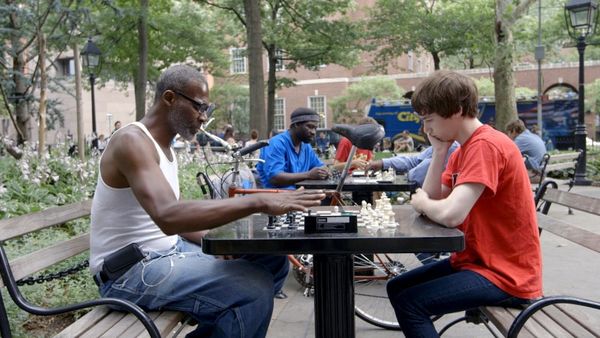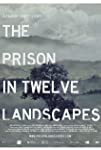Eye For Film >> Movies >> The Prison In 12 Landscapes (2016) Film Review
The Prison In 12 Landscapes
Reviewed by: Andrew Robertson

Though filmed in 2016, this meditative documentary has a timelessness to it. This comes not just from its measured approach but its depth. The 12 landscapes of the title run the length and breadth of the United States, from penitentiary to shining sea. Brett Story's film contains a number of stories, each illuminating a different aspect of the prison-industrial complex, the attached mechanisms of America's carceral parasite.
In 2016, there were, give or take, 2.3 million people incarcerated in the US. In scale that's somewhere between New Mexico and Nevada, but without their Senators, their Members of the House of Representatives. Even territories like Puerto Rico and Washington DC have some voice. This film never goes inside a prison, only once even approaches the walls. A landscape is more than just a place, a structure, it is a view.

"We're not the prisoners", but the shadows of those bars are long. If one were inclined to put the reading in this would be a route to Gramsci, Foucalt, Bentham, more recently and most importantly Davis. The processes at play here are astonishing, but this film is gentle in its approach. It shows you the landscapes, and lets you figure the paths through it.
There's a circularity. We start on a bus listening to the "calls from home show", and we will end there. Various stations other than radio on our journey. Chess, the chequered kingdom of deterministic outcomes. The new planes of landscapes decarbonised and recarceralised. The late pursuit of a man from a court. An inheritor to Omni Consumer Products and their own new Detroit. Wildfires. The racks of prison-specific retail, the clear glued cassette of prison-specific music releases, Yeezus, track four, New Slaves, "That's That 'Don't touch anything in the store'", "That's that 'Come in, please buy more'". "just..." (a different voice) "try to stay within those guidelines."
'Pocket Parks' whose impact isn't about their own fences but the radial statute implications centred on them. An occupying Army too similar to those they have been asked to oppress, a lesson that the Romans could have taught. County geometry and county arithmetic, "not the worst court" and it's true, run the numbers. $50 per capita here. $250 per capita there.
Other numbers, 34th and 7th. Seven dollars to put 50 on a phone card, a transaction cost and a maximum amount. A landscape of conversation, a place where voices meet. The clearing dialogue in a thicket of rents. Then that last, the bus, headed upstate to the prison itself. One of them, at least, Attica, as much and as representative a fairy-tale as the one at the end of Disney's Main Streets. Though that's Baudrillard, in truth, and not the others. Circularity, or at least a simulacrum thereof. The "calls from home show" has just two lines.
No locks, no interlocutors. Statements read on someone's behalf. A lawyer breaks it down. Look around. See the artefacts. The infrastructure. The train runs high over the valley floor and the library has a shelf piled high with the works of L Ron Hubbard and between the stacks and the stacks there are different perils. The bridge says 'extended weights, coal only', and everywhere are rules that are absolute unless they aren't. Like the pawns, en passant.
Some of these are single segments, some show us several scenes to set the stage. The 12 I have more or less parsed may be as arbitrary as anything else, there are places given and people talked to but it is in the rhythm and repetition that power builds. Maya Bankovic's camerawork and Olivier Alary's music support a set of views that give the audience the chance to build a set of views. Not here the justifications of Hold Your Fire, nor indeed the anger of Not Going Quietly. Solidly, slowly, surely, shown. To wildly misappropriate, this is less about Reading Gaol than reading jail, or more specifically its footnotes. The glacier cannot be seen, but its passage can, the crushing weight has left its mark. Icily, so does this film.
Reviewed on: 16 Mar 2022















